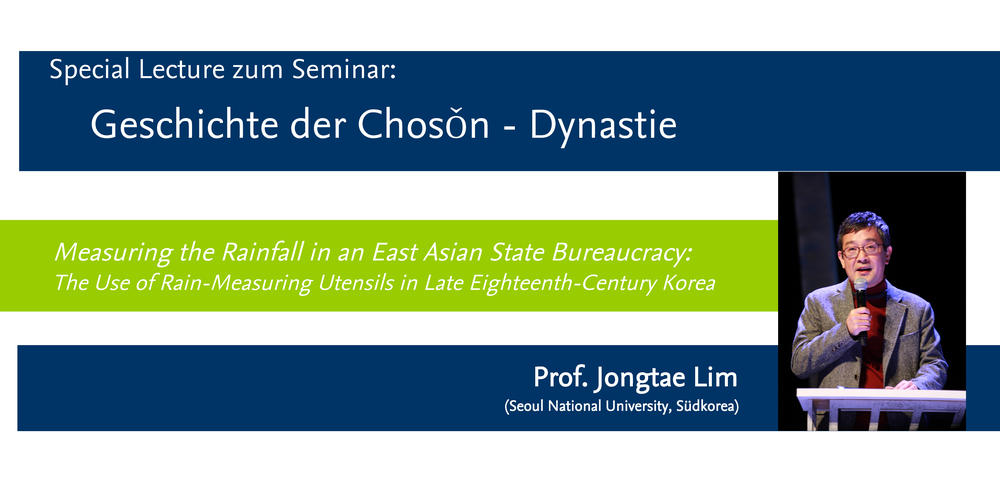"Measuring the Rainfall in an East Asian State Bureaucracy:The Use of Rain-Measuring Utensils in Late Eighteenth-Century Korea"
Special Lecture im Rahmen der Lehrveranstaltung: Geschichte der Chosǒn-Dynastie
Abstract:
In spite of its high popularity in Korean society as one of the brilliant scientific inventions in Korean history, the Rain-measuring Utensil (ch’ŭgugi 測雨器) is still not an object properly examined by historians of science. While rich documents are yet to be studied, previous research about the uses of this artifact in Chosŏn society has been sharply divided into two opposing positions. According to the majority opinion, the Utensil was an instrument for ‘scientific’ meteorology, providing rainfall data to be processed ‘statistically’ and then to be used for rationalizing the state agricultural policy. A minority of researchers alternatively suggests that the Utensil performed mainly a politico-ritual function, measuring the rainfall as heavenly messages to the throne. The cases of the late 18th century, however, shows that the Utensil played much more complex roles than suggested in both the two positions. While the Utensil symbolized the king’s priestly power in context of the state rituals for rain, it also provided the kings with a means to control local officials by imposing upon them a standard protocol for their rainfall reports of the provinces. How well did then the instrument perform the multiple roles assigned by the king? Cases in late 18th century tell that the instrument did not guarantee the political effect the king expected. The instrument was not a reflection of royal power, this paper argues, but was rather a product of the lack of it.
Zur Person:
Professor Jongtae Lim works in the history of science in Korea, focusing particularly on the modern transformation of Korean science from seventeenth to early twentieth century. His research deals with the transmission of European science into the intellectual society of late Chosǒn period and the subsequent interaction between the foreign science and the traditional knowledge of nature. Opposing to the conventional historiography that has emphasized the 'modernizing' influence of Western science on the late Chosǒn sirhak scholarship, Prof. Lims research highlights the efforts of yangban literati to incorporate the foreign science into the indigenous system of knowledge, the efforts that produced a hybrid of the East Asian and European knowledge of nature.
Zeit & Ort
12.06.2017 | 18:00 - 20:00
Institut für Koreastudien
Fabeckstr. 7
14195 Berlin

